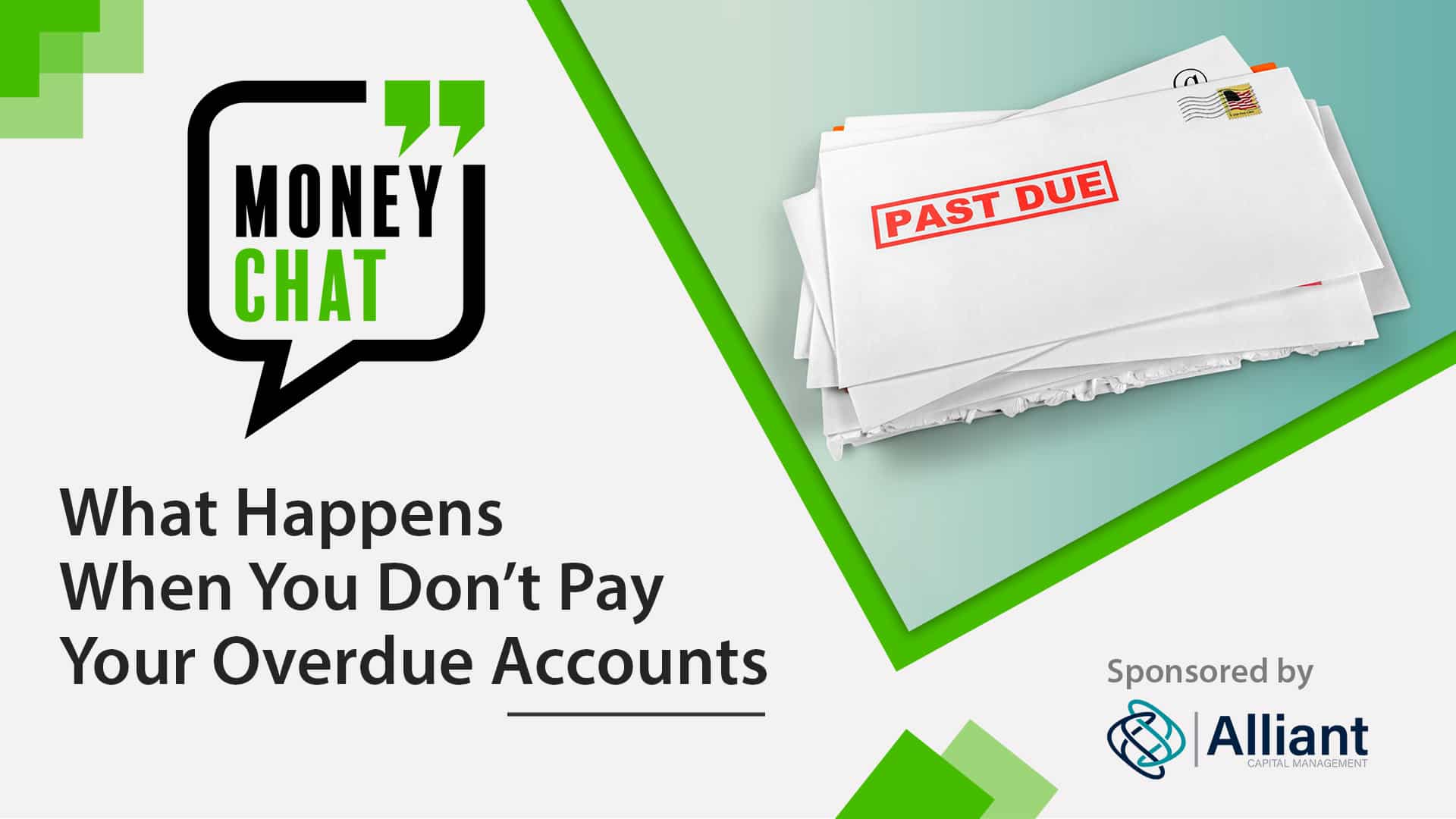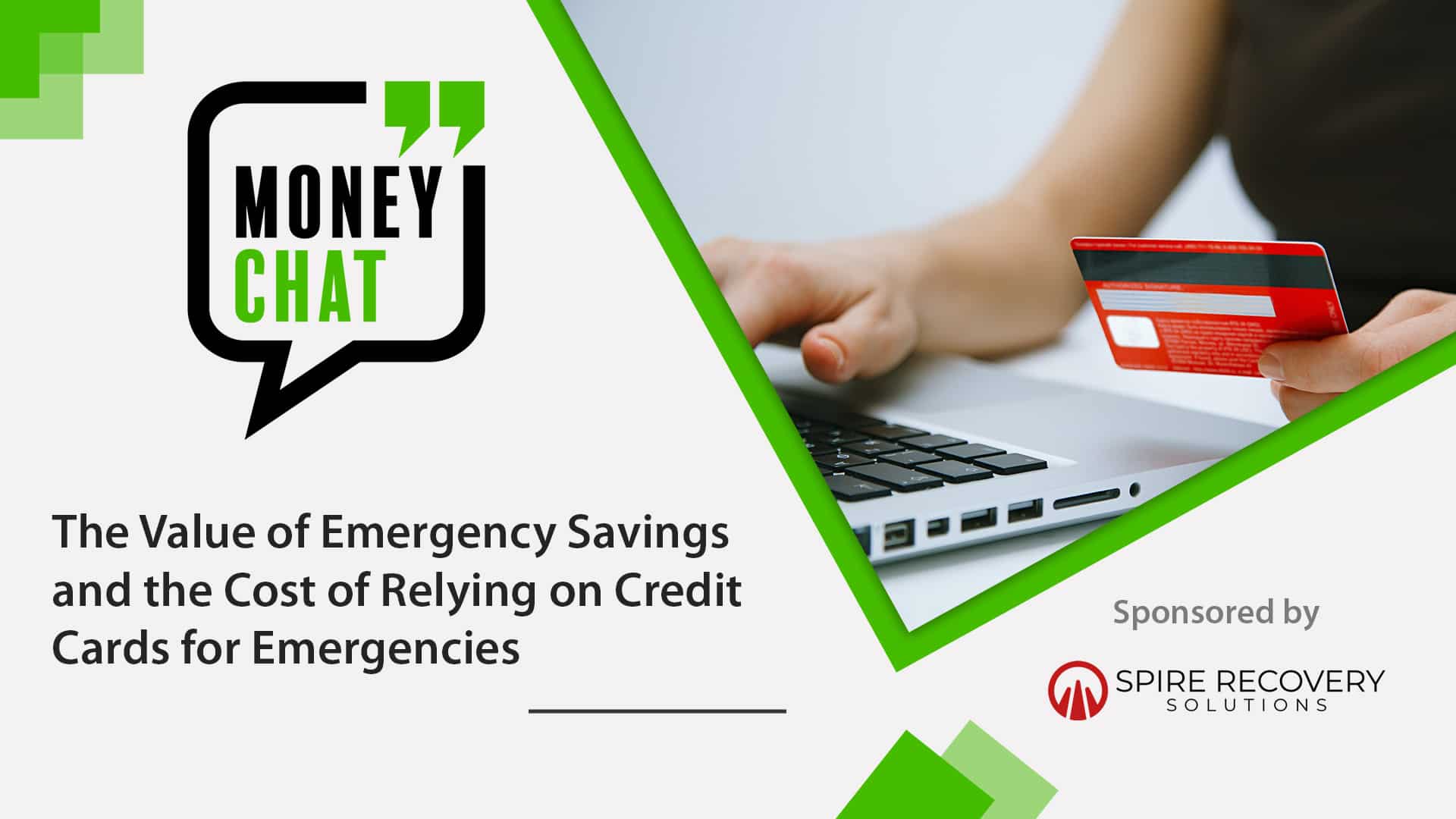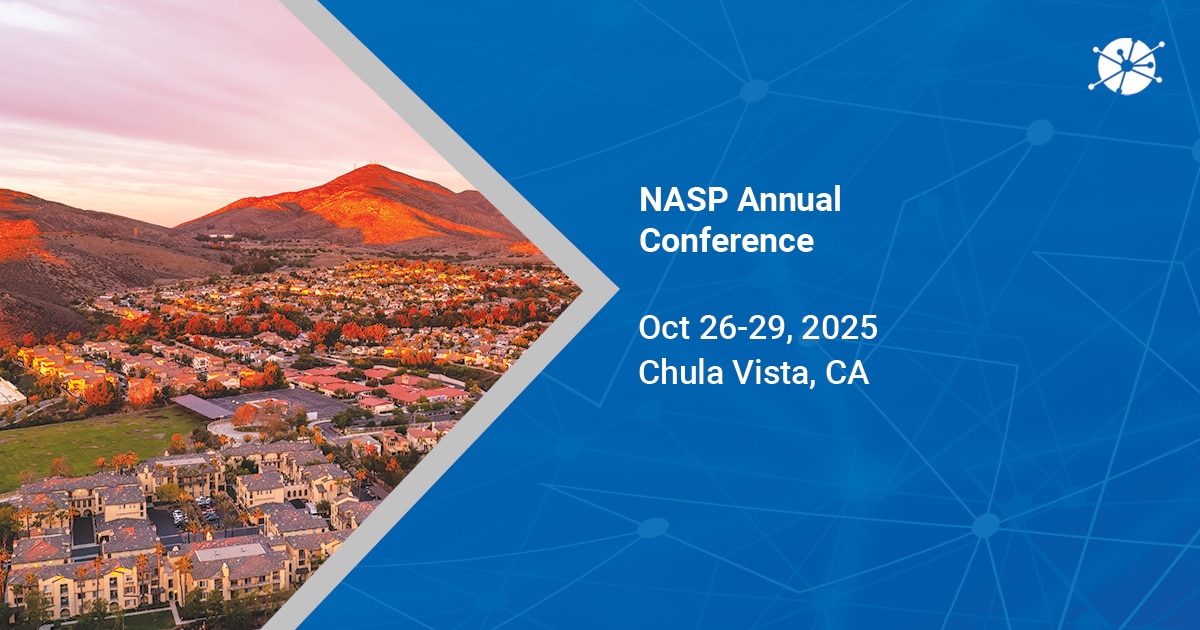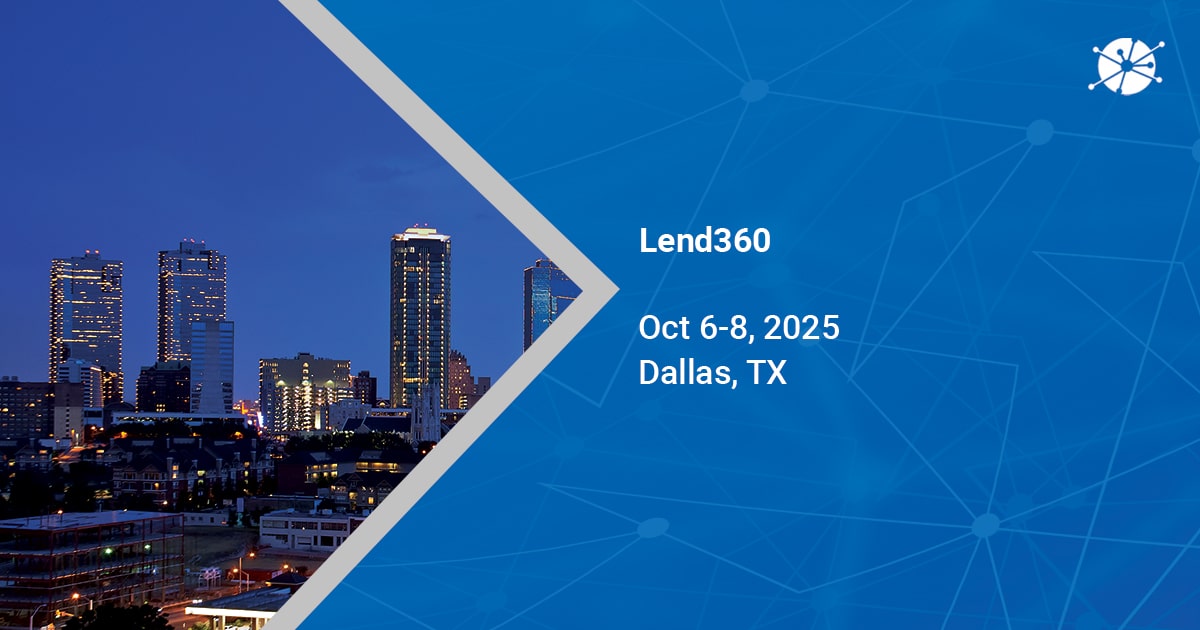
What Happens When You Don’t Pay Your Overdue Debt
Debt can be stressful. Whether it’s a car loan, credit card debt, or even a personal loan that you are trying to pay down, overdue accounts can lead to a myriad of issues for both the creditor and the debtor. However, many steps happen before debts become unmanageable. So what really happens when you don’t pay your overdue accounts?
The goal of this Money Chat is to help you understand what happens when you don’t pay off your overdue credit accounts, how that impacts your future, and what steps you can take to avoid missed payments or resolve your account.
Understanding The Credit Cycle
Before we dive into the problems that occur when debt isn’t paid off, it’s important to understand the full credit cycle. There are 7 steps to the credit cycle and each one of them plays a role in how your overdue accounts will be treated and how your remaining balance can be managed.
The application (applying for the loan) and underwriting (verification of the individual receiving the loan) define the beginning of the credit cycle, and it determines whether your line of credit will be considered “performing”—given to those who have historically made payments on time—or “non-performing”—the opposite. These designations change how your account will be handled should you enter the next step of the credit cycle.
Once you receive a loan and are falling behind on payments, your account may enter the delinquency stage of the credit cycle. Delinquency happens when you are late on loan payments for, typically, 30 or more days. When you have not paid your account, the status switches to non-performing, and your delinquency may be reported to the major credit bureaus.
After 90 to 180 days of missed payments, your account will likely enter the next stage—charge-off. A charged-off account is where most people typically expect their unpaid loans to go. Once a creditor “charges off” your account, it is closed and typically sent to the creditor’s collections department, a law firm, or third-party collection agency to recover on monies owed. In this stage, if the creditor chooses to use the courts to recover your account, you may enter the judgment stage of the credit cycle
After all of this is said and done, the last stage of the credit cycle is the statute of limitations. This is a set amount of time (different for all types of debt) that creditors and collection agencies can recover on your overdue account. However, there are ways to reset the clock on a statute of limitations to prevent account holders from simply not responding for 2 years and having their debt erased. Also note that if the creditor obtains a judgment for the owed debt, the judgment may have a different time limitation and provide for additional methods for the recovery of the monies owed.
The Likely Impacts Of Not Paying Accounts
Each case of collections is unique. Most account holders typically enter an agreement with the creditor or third-party collection agency to pay off their debt over a set period of time. However, if your account goes unpaid for too long without any communication from either party, here are the typical impacts:
Credit Score Adjustment
The biggest impact will likely be a credit score adjustment. Should your account become delinquent (you haven’t paid for a set amount of days), most creditors will inform the three major credit bureaus that you are now “untrustworthy of a loan”, which dramatically lowers your overall credit score. While this does not impact your ability to receive future loans, it will almost certainly lead to future loans being given at much higher interest rates.
For example, when mortgaging a home, those with 760-850 credit scores—known as the highest bracket a consumer can reach—their interest rates averaged 4.5% in 2021. For those in the 620-639 bracket—those who have had trouble paying down past debts or those without established lines of credit—their interest rates averaged 6.1%. This impact is felt more dramatically when borrowing a car as interest rates for those who couldn’t secure car loans soared 10% on average.
Lawsuits
When your account is labeled delinquent, the originating creditor (the organization that lent you the money) may opt to hire a collection agency or law firm to collect your debt on their behalf. When your account is charged-off and sold, that becomes “third-party” collections or collections attempted by a third party to your original contract.
While both methods of collection typically involve many phone calls, emails, texts, and pieces of mail regulated under the Fair Debt Collections Practices Act (FDCPA), collections can lead to lawsuits. If your account is overdue and the originating creditor hired a law firm to collect on your overdue account and deems it worthwhile, they may file a lawsuit to collect monies owed under several legal avenues. These legal remedies are called “judgments”. With a judgment, creditors can collect money owed through wage garnishments, liens, and more. State laws determine how much and by what means a creditor can collect from you, and they vary from state to state.
Wage Garnishments
The most common form of legal recuperation of monies owed is wage garnishment. Garnishments are the standard effect of a legal judgment against an account holder. In layman’s terms, a wage garnishment is when a court orders your employer to garnish, or supply, the organization holding your overdue account with a set amount of money directly from your paycheck each month. This legal action can be appealed, should the account holder not deem it necessary, but once the judgment is finalized, garnishments typically last until the overdue account is met with interest. To add to the trouble, garnishments last on your credit report for up to seven years beyond the initial ruling which could impact your ability to receive future loans at reasonable interest rates.
Repossessions
In the car loan space, repossession is the most common form of account recovery. Should you fail to pay your car loan, originating creditors will likely repossess your car to recoup on monies owed. Repossessions typically only occur after all other actions have been taken to settle your account or work with the account holder to pay back the loan.
Foreclosures
In the housing space, a bank foreclosure typically follows unpaid accounts. Much like a repossession, if the bank feels the account holder will not be able to pay off their debt on a mortgage, legal action is taken for the bank to foreclose their home and retake possession to be sold again.
What To Do When You’re In Debt
When you are faced with an overdue account, the above repercussions are beyond daunting. Neither the creditor nor you want to go through with any legal account to recoup on monies owed so take steps to lower the chances of a charged-off or delinquent account.
The first step is to work with your creditor or the collection agency collecting on your account. In most cases, collection agencies would be willing to set up payment arrangements that benefit both you and the agency, rather than go through tedious litigation or collection strategies.
Becoming financially stable starts with financial literacy. There are dozens of places across the internet that will help you better understand the credit cycle, how to pay off debts, and how to work within the system to make sure your account doesn’t fall further behind. Receivable Info’s “Seven Steps Toward Financial Independence for Beginners” is an excellent resource to begin your financial literacy journey.
Whether your account is active and you’re looking to stage vigilant against delinquency, or if you’re overdue and looking to stay out of legal trouble, understanding what specifically happens to your account when you don’t pay your bill is crucial to taking the necessary steps to reduce your risk.
Additional Resources
If you want to learn more about financial literacy or your rights as a consumer, please visit the Receivables Info Resources Page.
Have an idea for a Money Chat topic?
We want to hear from you! If you have a suggestion for a future Money Chat topic, please email us at [email protected].
The information contained in this article is meant to serve as general guidance for consumers and not meant to serve as comprehensive financial advice. For questions about your individual circumstance, finances, or accounts, please contact your creditor(s) and/or financial advisor directly.
Thank you to our Sponsor
Located in Buffalo, NY and Chandler, AZ, Alliant Capital Management is a professional debt collection company that provides recovery services for creditors. We have decades of experience in delivering compliant and affordable debt collection services. We are committed to delivering innovative, effective, and affordable solutions for our clients while providing the best possible experience for consumers.









